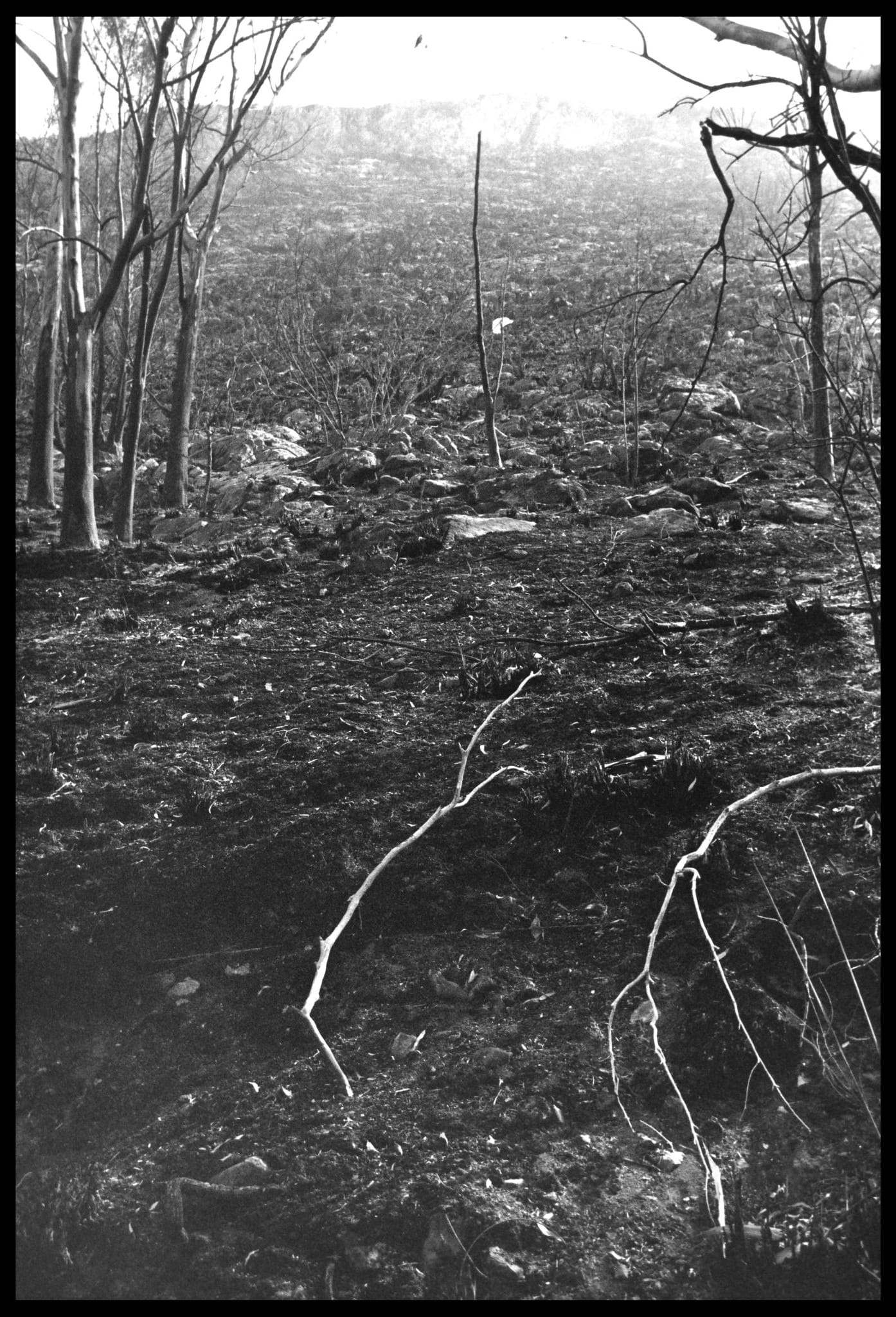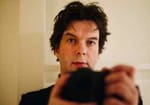Escaping A Wildfire In Sicily And Capturing The Aftermath With A Barnack Leica IIf

In the summer of 2023, Southern Italy was struck by some of the fiercest wildfires in recent history. That summer, I was staying with my wife and children at my mother-in-law's home in the hills just outside Palermo, Sicily, when we were caught amid a wildfire. In the following days, I used my Leica IIf with a Summitar 5cm f/2.0 lens to document the aftermath. The photos hold no artistic aspirations—they were meant to capture what I witnessed.
Below is the story I wrote to describe my experience.
The evening had begun like so many summer nights in Palermo: warm and humid, with a sinking sun over the bay of Mondello and the almost deafening sound of thousands of cicadas dancing in the vibrating heat that radiated off the terracotta terrace tiles.
The sky was clear, though not entirely cloudless, and across the bay, I saw smoke. It was the kind of smoke that makes you think of a barbecue gone wrong—thick, black meat with flames leaping up. Only this time, the 'meat' was a forest of pine trees ablaze, and the 'barbecue' was the hillside they clung to—thousands of them, if I'm being conservative.
The balcony I stood on—on the second floor of a family villa—was more than five kilometres from the fire. Still, we could see Mondello, a popular beach resort at the bay.

As the evening fell, so did the water from the firefighting planes. They flew overhead, turned, scooped up seawater, and circled back to release it until it was too dark to do so safely.
The hillside looked almost festive in the darkness—like a distant Christmas display, flaring with twinkling lights each time the fire surged. By then, the sky had thickened with smoke, and the sharp scent of burning wood hung in the air. Yet, from where we stood, it still seemed harmless—distant, with a large bay and towering hills separating us from the fire, kilometres away.
"Good thing the wind's blowing the other way," said my wife's aunt, stepping up beside me.
"Yes, thank goodness."
Spiedini
Then, around nine o'clock, the real meat hit the grill: one of my all-time favourites—spiedini, a Palermo speciality.
Spiedini are small chunks of meat, chicken, and minced meat skewered on wooden sticks, with slices of onion and aubergine cubes in between, roasted—or sometimes baked—in the oven. They were served with fresh salad and warm, crusty bread—the kind you can buy almost anywhere in Sicily, at any hour of the day.
We drank several small glasses of vino spumante, and with each one, that familiar, carefree holiday feeling settled in. You know the one—when everything slows down, everything feels lighter, and the world, for a moment, seems perfect, even with a forest burning in the distance.
That's how I sailed off into my dreams that night.
3 AM
Then—it must have been around three—I was jolted awake by a hard slap on my arm.
"We have to leave—now!"
It was my wife, standing on my side of the bed.
"What?" I asked, groggy and confused.
"Go! We have to go now. Wake up!"
By then, I was fully awake and understood why she was panicking. The concierge had just called her aunt from his office and phoned every house in the residence to say that everyone had to evacuate immediately.

Smoke
When I got out of bed, the entire house reeked of smoke—sharp and bitter. Outside, I could hear the wind howling and the crackling of burning trees, dry grass, and brush.
Through the wooden shutters, I saw an orange-yellow glow lighting up the garden as though a stadium concert were underway. Glowing pine needles drifted through the air, and flaming pinecones bounced across the lawn.

The garden was filled with the same kind of pine trees that had gone up in flames kilometres away just hours earlier. A sizeable wooden summerhouse, tall palms, and a substantial butane gas tank in the garden added to the tension. Though buried underground for safety, the connections had to surface above ground. They would probably do so near the front gate, where the fire had already reached the villa's ivy-covered fence.
Nearby, a short garden hose lay curled on the ground—it would have been utterly useless against a blaze like this.
Author's note: I heard later that the wind had changed direction entirely during the night—and picked up speed. This shift had allowed the fire across the bay to spread over tens of kilometres in just a few hours. The speed at which it all happened is hard to comprehend. You hear about it, you see it on the news. The only thing you can do is get out as quickly as possible. The speed of the fire is unimaginable.

Adrenalin Kicking In
I realised how fast fire can move when I ran to the children's bedroom and woke them up—in the most unorthodox way. "Kids, clothes on—now! I mean it right now!"
They were both profoundly asleep. It took them nearly a minute to fully wake up, which felt like a second to me. Despite the chaos and urgency, I felt sharp, calm, and focused. Some primal instinct—or survival mechanism—had probably kicked in.
In minutes, we were all packed into the white Renault Twingo—my wife, me, our two children (with wet towels over their faces to protect them from the smoke), my mother-in-law, and my wife's aunt. I backed it out of the garage in one smooth motion. Usually, that manoeuvre would take at least a full minute—it's uphill, in reverse, and with a manual gearbox. But this time, I did it in seconds. The engine was screaming, the clutch was burning, but we were moving.
In the distance, we heard dull explosions—small butane tanks, the kind allowed above ground, bursting from the heat. Everywhere I looked, I saw smoke and fire.

The Residence
When we reached the concierge's office, twenty or thirty people had already gathered outside, having fled their homes. A squadron of Carabinieri was sealing off the residence to prevent anyone from going back in.
At that point, no one knew who had evacuated and who might still be inside. From what I later heard, police had gone up the hill to check door by door, risking getting trapped themselves.
We eventually left the residence, not knowing whether our house would still be standing when we returned.

The Day After
The following day, after spending the early hours at the house of one of my wife's relatives, the police informed us that the wind had shifted again—and it was now safe to return to our part of the residence.
In the end, the fire had reached our garden, burning down some trees and a section of the fence, but it hadn't touched the house or caused further damage.
We had been fortunate.
Some homes in the residence were partially damaged. Others—entirely destroyed. That morning, we spent our time putting out burning patches in the garden and quietly thanking whatever higher forces were watching over us—that no one was hurt and that the house was still standing.

As the sun rose, the air was thick with smoke, and ashes were scattered everywhere—a grey film covering everything. It would stay like that for another three days before things slowly returned to normal.
Many residents were able to return to their homes. Still, the devastation in the surrounding areas was evident, with vast stretches of forest burned down. Fortunately, firefighters could contain the blaze, aided by favourable wind conditions. However, two lives were lost in the greater Palermo area, and several homes were destroyed.
The Cause
In conversations with locals, it became apparent that wildfires have plagued the region for decades, making it challenging to identify a single cause. Various theories emerged, ranging from climate change to intentional acts and accidental ignitions, such as discarded cigarettes. While the argument for climate change is prevalent, I find it speculative, particularly given the region's history of wildfires. The people I spoke to told me wildfires were nothing new—part of this place long before anyone knew of global warming.
I wanted to share this story with you because the wildfire really impacted me even though no one was hurt and we didn't lose any property. Going through a stressful situation like this, where the people you love could be in danger, gives you a firm reality check. It reminds you how relative everything really is and how important it is to be grateful for what you have.
What would have happened if we hadn't been woken up that night? You don't smell smoke when you're asleep—I experienced that firsthand. What if the fire had been even more intense and blocked our escape routes? These are things you don't want to think about. And "knock on wood," I hope we'll never experience something like this again.

🙏🏻 Thank You for Reading!
Do you enjoy this kind of content? Subscribe to my free weekly newsletter below, and you'll get the next edition of Photographer's World Weekly—packed with inspiring stories, great photography, and creative insights straight to your inbox every Sunday!
Be Featured Here
Do you have a good photography story to tell, or would you like to be featured as a photographer, please visit my submissions page. Have a question? Feel free to reach out —I personally respond to every email.
Support FassKraft
FassKraft is a passion project that I work on in my spare time, alongside a family and a full-time job. Creating, editing, curating, and managing the website requires a significant investment of time. If you'd like to support my efforts, please use the button below. Thank you so much for your support!




Comments ()